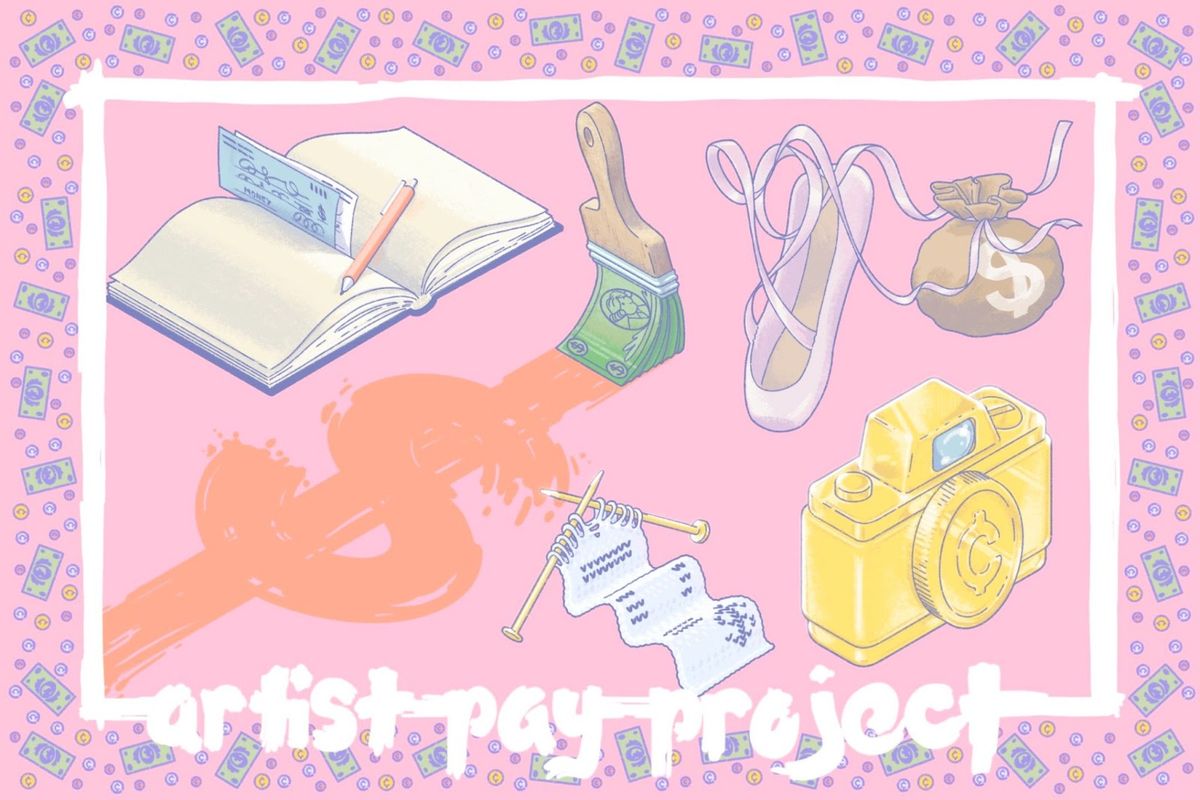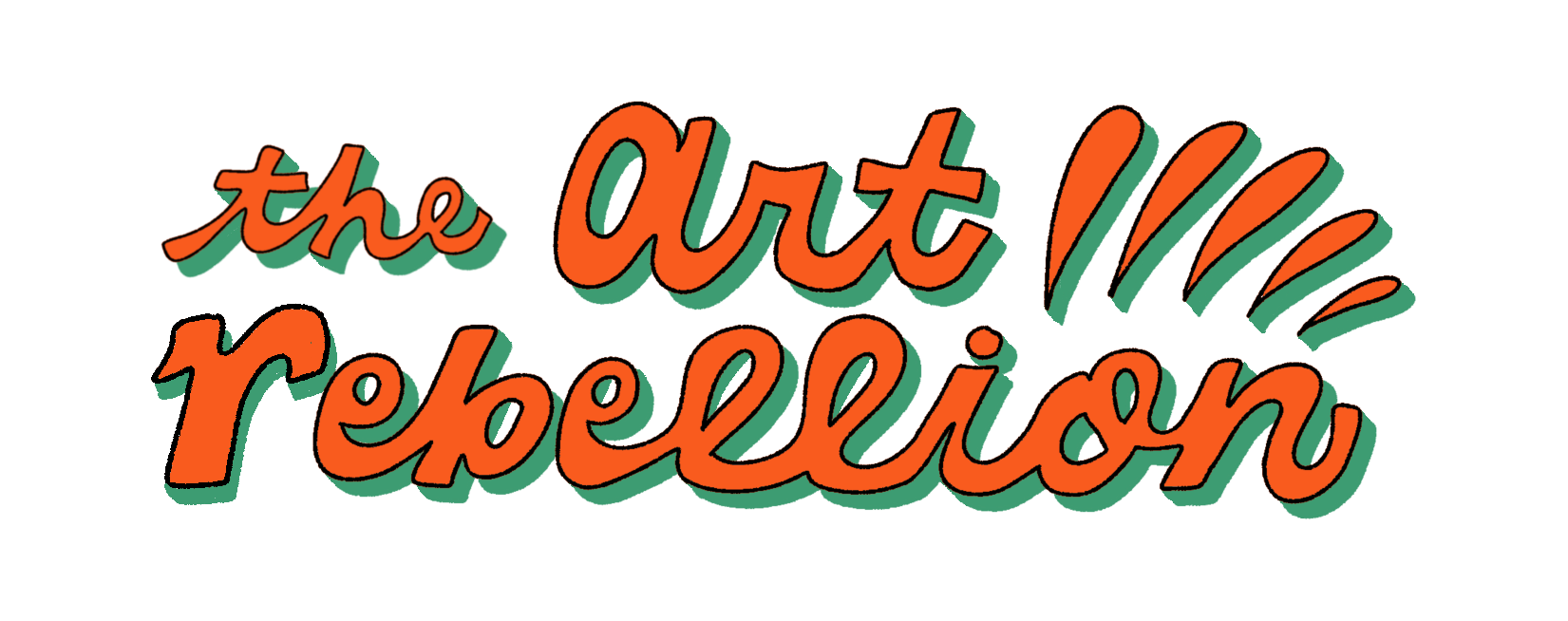Artist $napshot: Houston-based dance professor and choreographer
I feel comfortable enough that I can pay my rent, keep my stomach full, and also produce the art that I want to produce

The Artist Pay Project is a series exploring how artists in the U.S. survive and thrive amid a cost of living crisis.
This Artist $napshot tells the story of a 34-year-old associate professor of dance and choreographer who makes $55,000 a year.
Survey
Art Practice: Associate Professor of Dance. I teach dance technique classes — modern, jazz, aerial silks. Lecture dance courses include dance composition, choreography, and dance appreciation.
I’m also a freelance dance teacher and choreographer.
Location: I live in Houston, TX and work in Beaumont, TX.
Age: 34
Pronouns: He/They
Earnings
Income:
$55,000 annually
How much of your income is from your art practice?
100%
How much are you paid for your freelance or contract dance-related work?
Choreographed a solo, duet and trio for a competition dance team.
Solo – $300, duet - $400, trio - $600
How do you price your art?
Solo – $300, duet - $400, trio - $600
I start at $300 for choreography and charge $200 per dancer. Dance for 6 dancers = $1200 dollars.
I charge $75 per hour of teaching freelance work
For a masterclass, I charge a flat rate of $300
Expenses
Housing:
$1,700 a month, which includes trash and water
What are your major monthly expenses?
Gas - $300 a month
Internet - $200 a month
Groceries - $800 a month
Do you have any expenses related to your art practice?
I get free dance space because of my jobs.
Larger financial picture
Do you have any financial support from outside sources?
No
Have you received any grants to support your art?
No
Do you have health insurance?
Yes
Do you have any debt?
Yes, my school loans are $10,000.
Do you have any savings?
Yes
Did you pursue higher education?
Yes, B.F.A. and M.F.A
Q&A
Responses edited lightly for length and clarity.
How do you feel about your financial security right now?
At the moment, I feel comfortable. A huge part of my job is research so I do have the opportunity to apply for grants and funding through the university I work for. But when it comes to freelance, a lot of that is out of my own pockets, so I feel comfortable enough that I can pay my rent, keep my stomach full, and also produce the art that I want to produce.
Has your financial security improved from when you first began working as an artist?
100%. That's definitely why I looked for a job in academia, because I've always known from when I was young that I wanted to support myself with dance being the number one source of income.
What was it like for you in the early days of being an artist?
I did my undergrad and then got my master's degree. Undergrad, I was by myself and it was a very starving artist mentality, even in college, which I didn't really even expect. Because I think what they don't tell you when you go to college for dance is that all the time you would be spending with a job usually is now in rehearsals. So that was kind of a culture shock for me. I didn't have a lot of money left over from financial aid to really just get me through day to day, so I really heavily relied on my connections and people that were in the department with me.
When I got my master's degree, I had moved to a bigger city with a significant other. So I had a little bit of help alleviating the bills, but I think it was still the same thing. They give you TA-ships, but you're still spending time in rehearsal, which definitely cuts the amount of income that you're allowed to make. It was definitely touch and go for the most part. I've been lucky to live in the university system, which has helped me and been a crutch in some aspects, no matter how big or small, but I think without the security of an actual job in academia — it was very touch and go for a little bit
From your perspective, what are the biggest challenges for artists making a living?
It was finding the income to do all of the stuff before you get the job. The headshots, the travel, the audition fees, or the choreography fees for festivals, depending on the emphasis that you're choosing. But finding the money to get you to that initial spot where you make the money was the biggest hardship that I faced, and something that I would love for other people just to be aware about. I think another hardship would be just the choice of when to work on your life and then when to work on your art, and having to know when to make the mature decision.
Can you talk about your experience having to make that choice?
When I was an undergrad, my junior year, also my senior year was spent solely working outside of dance. I was still doing my core classes and going to my rehearsals, but I definitely asked my professors if I could take my responsibilities and split them in half because I knew that I needed to pocket my bank account before I moved to get a master's degree. That was beneficial, obviously, because it helps me get to where I am today.
But it was also just hard at the time because as artists — we're sensitive, right? We always want to be a part of whatever's going on. Being outside of that box is very hard emotionally. And then I think especially when I moved with my significant other to Houston and then we also got married while I was getting my master's degree, having to also add that lens of romantic life with freelance life, and then work. It's just choices had to be made. And I think that was the biggest hardship.
What resources would be helpful to people in the dance world? Or artists in general?
I feel like your biggest resources are the people that you dance with. Whether that be the couch you sleep on, a shared grocery trip, or a meal cooked for you. I know that's what I've always relied on and had in my back pocket, just in case. Also seeking the unpopular dance jobs — is what I'm going to call them, not to depreciate their value in any way — but outdoor musicals, working at theme parks, some of the dance jobs that keep you connected with dance, but aren't the top tier jobs like dance companies and so on, so forth.
Is there anything this country — or even more locally, like Houston — can do to support artists making a living from their work?
We're doing our best job as we can, because everything trickles down from the top. We all know that the government and politicians don't like to spend money on things that they deem alternative lifestyles, however we define that. And dance definitely fits under that umbrella term for a world that tries to view things from an objective place. We exist in this subjective world where it's all about sensitivity and feelings and philosophies and theories. I think just trying to validate that it's a little hard, so if the world could appreciate the value in that just a little bit more, we'd be in a better place.
Do you believe that pay transparency can help artists?
Being transparent in all aspects of life is definitely advantageous. Now, with things emerging like Todrick Hall not paying his dancers and then trying to get Superbowl dancers to dance for free — I think transparency is not only required, but desired now. We also exist in a world where people have to pay us in exposure. To actually go back to my last answer, I think that's how we get the world to appreciate a subjective art. By placing value on more of the objective things that our field can offer such as making a living off of doing something that you love. If we can validate that with pay transparency, then I think we're in a better place and I think the world is in the right step towards that because it becomes a little bit more objective and people understand the pay scale a little bit more.
Being in academia, do you find it difficult balancing teaching with your own art practice?
That's actually why I was looking for a new job. The job I'm currently about to go to is a tier one research school. What has been promised to me is that I will have more time to do just that, focus on my art versus my teaching. When you're in academia, there's three things that you have to meet and one of them is teaching. The other is creative activities/research. And then the third one is service.
Depending on the school you go to, they give them different percentages and different levels of importance. The university I'm about to go to, the biggest importance is put on research. And they hit that home from the very beginning. They said that we want you to create art that gives us notoriety. So I'm super pumped in that aspect. With my past job, that has not always been the case.
Read more about the Artist Pay Project.
